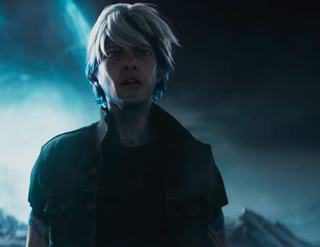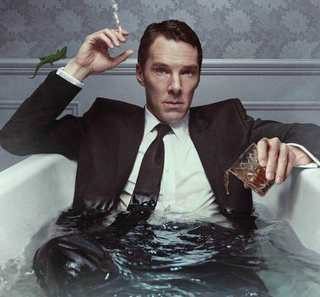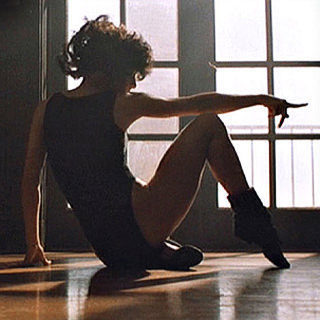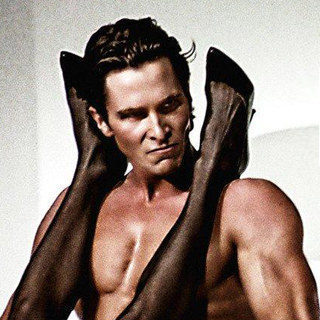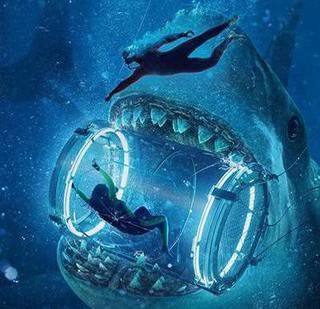(Not)heroes: the story of a deconstructed superhero image in comic book adaptations
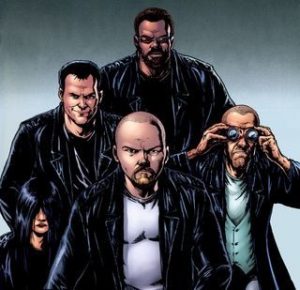 Marvel now many took out. More precisely, not even Marvel itself as such, but the dominance of their film comics. Film adaptations are full of stamps and even self-copying (I still laugh at how similar the plots of the third “Thor” and “Black Panther” are, and how much they differ in implementation), and the conveyor feed of content simply tired some viewers, and a trip to the cinema for a fan of comics turned from a holiday into a routine. But then deconstruction burst onto the stage of film adaptations again — and this time it appeared on time and in a big way.
Marvel now many took out. More precisely, not even Marvel itself as such, but the dominance of their film comics. Film adaptations are full of stamps and even self-copying (I still laugh at how similar the plots of the third “Thor” and “Black Panther” are, and how much they differ in implementation), and the conveyor feed of content simply tired some viewers, and a trip to the cinema for a fan of comics turned from a holiday into a routine. But then deconstruction burst onto the stage of film adaptations again — and this time it appeared on time and in a big way.
Spoonful of history: the eighties was a difficult period for the comic book industry. Stories began to gradually move away from the riot of colors, irrepressible pathos and ultrapositive, deeper and stronger to consider social problems, to climb into politics, to criticize the existing system, through the prism of other, artificial worlds to tell what is happening in the real world, exaggerating events and their outcomes.
Comics remained picture books, no one disputes that, but the stories themselves have become darker, sharper, tougher. The focus shifted partly from superheroes, already full of teeth, to stories about creatures without any superpowers-more often they were inspired by fantasy, horror, pulp fiction, post-Apocalypse. The culmination of this period was the release of two very iconic works – “Guardians” by Alan Moore and” Return of the Dark Knight ” by Frank Miller. With them, in General, and began a new era – “dark”, and this word in primarily denotes character stories.In that period, the term “deconstruction” came to comics — if you take the definition, it is ” understanding through the destruction of a stereotype or inclusion in a new context.” However, many of those who were inspired by Moore and Miller, decided not to dig deep and focus only on simple moments-rigidity, graphic sex, and such a dark presentation of the material. Although in fact deconstruction was rather a philosophical thing, entrenched in the perception of the image of the superhero as such, and severed limbs, rape and so on-so, tinsel to enhance the effect and lull vigilance. Now deconstruction is called everything that is at least a little different from the simple, oak, straightforward and kind superheroics, but the most vivid and clear examples still try to follow the General idea: they show what superheroes would be if they existed in a world almost indistinguishable from ours. How would they be able to fit into ordinary reality, what problems would be faced.
The film adaptation of the comics of that time also met with the deconstruction. In 1989, Tim Burton took his” Batman ” — Gothic, with a lively, neurotic even the main character played by Michael Keaton, far from the image of an unshakable hero, and he began to undermine the stereotypical foundations. Readers of comics to such interpretation of events managed to get used, and here the audience of cinemas expected sincere, toothless superheroics, and received something else. And they liked it.In the 90s, the only more or less successful adaptation of comics was just a sequel to Burton’s “Batman” – most of the films did not go even to teenagers, which was directed (well, there was still a “Mask”, which from the comic original increased bloodiness horror as far). And then the noughties came, and the movie comics went mainstream.
Thank you for this is Bryan singer, with whom Marvel launched a successful film franchise “X-Men” (the rights to it until recently were at Fox). However, in parallel with The “x-Men” in 2001 came “Invulnerable” M. night Shyamalan, who and the mood and approach is strikingly different from the creation of singer.Shyamalan’s film was not a comic book adaptation, but its plot revolves around superheroics, its image, canons, stamps, which are full of such stories. I recently revised it, and this slow, slow, quiet film in contrast to the traditional riot of colors, explosions and action — eternal friends of stories about superheroes — really vividly shows the deep philosophical essence of the process of deconstruction. But after “Invulnerable” it again almost forgot in favor of external manifestations-comicality, darkness for the sake of darkness, not quite moderate cruelty.
And off we go: in Pisarevskiy “the Incredibles” were derided cloaks as an attribute of superheroine in “Hulk” ang Lee Eric Bana showed the most insecure superhero in the world with terrible family problems, in “Hancock” will Smith could not control the damage that has caused to the city when someone was saved, in malanowski “Balmenach” there was a communication problem between the government and the brutality, and the heroes of the film “Kick-ass” and did to some extent follow in the footsteps of watchmen, but I fall instead of the depths of consciousness in black humor.The film adaptation of the Guardians was released in 2009, and, to be honest, it was a bit of a bad time. Zack Snyder put the comic on film as accurately as possible, vividly showing how such “superhumans” – it does not matter whether they have superpowers or not-live in an ordinary world among ordinary people and destroy this fragile world by their very existence. He followed the same line in other comic book adaptations — “300 Spartans”, “Man of steel”, “Batman V Superman”. And it turned out well, but…
But at that time, Marvel launched its machine to produce entertaining, ironic and at the same time sincere content that the viewer liked more Snyder symbolism. With such focus of a place in marvel adaptations for deconstructive philosophy practically did not remain, however and it a little bit touched — in the movie “The first avenger: Opposition” the essence of the conflict just also consists in how superheroes are unpunished: probably, it is necessary to regulate somehow them nevertheless, so it will be easier and safer, but, maybe, to leave them freedom to be anonymous, and that suddenly they will begin to attack.Truth, the entire this uncertainty, as and in other pictures, ranks quite a small part of movie — in late would still good wins evil, and all diverge. Degree withstand not manages: in the endgame films from Marvel instead food for reflection the viewer grant simple morality and issue with the world. From this proven scheme slightly departed only in the third “Iron man”, where the main character is defeated, suffers from PTSD, does not believe in himself, does not know what to do with his life — he doubts his heroism. The film, which is funny, especially successful was not because simple the viewer wants a simple happy ending. At least, so many thought. But for 11 years, colorful and bright Marvel got many, and deconstruction was a great way out.
It was such a long introduction. Now the point.A couple of weeks ago, Amazon released the first season of ” Boys.” Not to be confused with the creation of TNT: the new “The Boys” – the film adaptation of the comic book of the same name, released by Dynamite. More precisely, it was originally created for DC Comics, but in the story openly exploited and showed from the most unsightly sides of the characters, very much like the main characters of the DC Justice League, so that the publisher took offense and sent the authors to look for another house for this idea. And they did.For a superhero-weary modern audience, the film adaptation of “the Boys” was a breath of fresh air. In the center of the history here two teams: one – “Seven” – consists of the best superheroes of the USA, another-those “Boys” – superheroes hates. Everyone has their own reasons for hatred: Huey, for example, a super-fast superhero demolished a girl, turning her into bloody dust, and did not even stop to apologize.Now the most relish: superheroes here — not that individuals acting on their own. They are all, one might say, managed by the Vought megacorporation. As it turns out in the process, the entire industry superheroics rotten commercialized-heroes surrender cities in lease, to boost status region, their use in pressure on politicians, them telling staged skirmishes with enemies, because to skirmishes real they find themselves virtually not adapted, Yes and in a whole improvement quality of life world superheroes worries much less, than percent with profits from sales comics, advertising contracts and other husks. From the inside, starlight looks at the superhero party-a new member of the top team, “Seven”, who dreamed of being a sincere, bright, unconditional superhero since childhood, but suddenly fell into a harsh reality.
Yes, here, as in most deconstructed plots, there is a good old ultra-violence-in the frame there is a disgustingly creative dismemberment, artificial blood flows in cubic meters, bones break with a juicy crack. But behind this tinsel lie several very deep ideas-from a closer to the surface of the story of rampant commercialization, for which the essence of heroism itself is lost, to deep personal dramas, teeming with cockroaches and complexes, through, again, the revision of the image of the superhero, his place in the world described in the series (there even religion could
The authors very accurately withstand the ratio moralizing and bloody frenzy throughout virtually the entire receives more superficial treatment. Perhaps, only in the beginning bend with cruelty, probably, aspiring at once to frighten off gentle violets, and in the ending begin to roll down in a melodrama, but in time finish a season. Yes, they largely depart from the original, seeking to make the comic, which was published from 2006 to 2012, more relevant. And they do it amazingly organically. If the comic, released nearly 15 years ago, was an irony on the industry, then the series is a spit in the face of all of Hollywood, the entire dream machine that laid big and fat on laws, morals and mere mortals. The main thing — the loot flowed.And this in itself is ironic: the “Boys” now rating on IMDB 8.9, around enthusiastic comments, and many bought a subscription to Amazon Prime just for the sake of this series.
